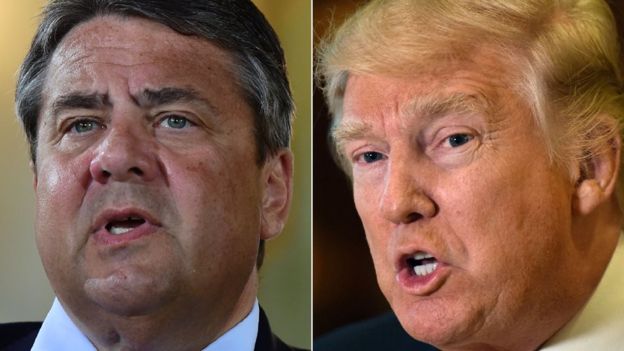
Saudi Arabia's King Salman made his son his successor on Wednesday, removing his nephew as crown prince and giving the 31-year old almost unprecedented powers as the world's leading oil exporter implements transformational reforms.
A royal decree appointed Mohammed bin Salman crown prince and deputy prime minister. He retains defense, oil and other portfolios.
It said Crown Prince Mohammed bin Nayef, a counter-terrorism chief admired in Washington for putting down an al Qaeda campaign of bombings in 2003-06, was relieved of all positions.
Although Mohammed bin Salman's promotion was expected among close circles it came as a surprise at a time the kingdom is facing heightened tensions with Qatar and Iran and is locked in a war in Yemen.
The royal decree said the decision by King Salman to promote his son and consolidate his power was endorsed by 31 out of 34 members of the Allegiance Council, made up of senior members of the ruling Al Saud family.
Always intent on dispelling speculation of internal divisions in the Al Saud ruling dynasty, Saudi television was quick to show that the change in succession was amicable and supported by the family.
Throughout the early morning it aired footage of Mohammed bin Nayef pledging allegiance to the younger Mohammed bin Salman who knelt and kissed his older cousin's hand.
"I am content," Prince Mohammed bin Nayef said. Prince Mohammed bin Salman replied: "We will not give up taking your guidance and advice."
Analysts said the change ends uncertainty over succession and empowers Prince Mohammed bin Salman to move faster with his plan to reduce the kingdom's dependence on oil, which includes the partial privatization of state oil company Aramco.
"The change is a huge boost to the economic reform program...Prince Mohammed bin Salman (MbS) is its architect," said John Sfakianakis, director of the Riyadh-based Gulf Research Center.
Bernard Haykel, professor of Near Eastern Studies at Princeton, said the king's decision was aimed at avoiding a power struggle between his son and Mohammed bin Nayef by setting the line of succession clearly.
"It’s clearly a transition that has happened smoothly and bloodlessly. Now it's clear, it’s straightforward. That kind of clarity lowers the risk, there’s no question as to who’s going to be in charge."
-Reuters
 رئيس اللجنة التحضيرية للحركة السياسية لشعب الجنوب يهنئ بن شاجع بشهر رمضان
رئيس اللجنة التحضيرية للحركة السياسية لشعب الجنوب يهنئ بن شاجع بشهر رمضان
 أمين عام حزب العدالة والحرية يهنئ بن شاجع بحلول شهر رمضان
أمين عام حزب العدالة والحرية يهنئ بن شاجع بحلول شهر رمضان
 اليمن: شخصيات اجتماعية وسياسية تهنئ الشيخ بن شاجع بحلول شهر رمضان
اليمن: شخصيات اجتماعية وسياسية تهنئ الشيخ بن شاجع بحلول شهر رمضان
 تكتل قبائل بكيل يهنئ أبناء اليمن بحلول شهر رمضان ويدعو الجميع الاصطفاف لمواجهة التحديات
تكتل قبائل بكيل يهنئ أبناء اليمن بحلول شهر رمضان ويدعو الجميع الاصطفاف لمواجهة التحديات
 بن شاجع يدعو لمراجعة المواقف والتوحد أمام التحديات الكبيرة التي يواجهها اليمن
بن شاجع يدعو لمراجعة المواقف والتوحد أمام التحديات الكبيرة التي يواجهها اليمن
 محكمة سعودية تبرئ مستثمرًا يمنيًا قُتل تحت التعذيب بتهمة كيدية
محكمة سعودية تبرئ مستثمرًا يمنيًا قُتل تحت التعذيب بتهمة كيدية
 الأمم المتحدة: نقص المساعدات فاقم الوضع الإنساني المتردي في اليمن
الأمم المتحدة: نقص المساعدات فاقم الوضع الإنساني المتردي في اليمن
 مسلحون قبليون يفجرون خطاً لأنابيب النفط في مأرب احتجاجا على رفع أسعار الوقود بالمحافظة
مسلحون قبليون يفجرون خطاً لأنابيب النفط في مأرب احتجاجا على رفع أسعار الوقود بالمحافظة
 المبعوث الاممي يعلن موافقة الأطراف اليمنية على بنود خطة سلام دائم
المبعوث الاممي يعلن موافقة الأطراف اليمنية على بنود خطة سلام دائم
 مأرب: قتلى وجرحى بسبب رفع أسعار الوقود والقطاع القبلي مستمر
مأرب: قتلى وجرحى بسبب رفع أسعار الوقود والقطاع القبلي مستمر












 فيسبوك
فيسبوك  تويتر
تويتر  يوتيوب
يوتيوب 
قيامك بالتسجيل وحجز اسم مستعار لك سيمكنكم من التالي:- الاحتفاظ بشخصيتكم الاعتبارية أو الحقيقية.
- منع الآخرين من انتحال شخصيتك في داخل الموقع
- إمكانية إضافة تعليقات طويلة تصل إلى 1,600 حرف
- إضافة صورتك الشخصية أو التعبيرية
- إضافة توقيعك الخاص على جميع مشاركاتك
- العديد من الخصائص والتفضيلات
إضغط هنا
إضغط هنا